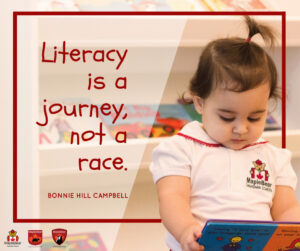Literacy

To me literacy is communication. Wherever you practice your writing or your reading skills you are employing literacy. What I found after doing some research on the term “Literacy” was the following: it is defined as the ability one has to read, write, listen and speak while making us have a better understanding of the world around us and the ways that are out there to help ourselves communicate way more effectively with those around us.
The role that literacy plays in American society is incredibly big. John Trischitti talks about the opposite side of literacy which is known as “illiteracy” that he defines as “the lack of ability to read or the basic inability to understand/produce written information. He also points out how this problem seems to affect one billion people around the globe. This video was uploaded to the YouTube platform 6 years ago, in 2017 so most likely and unfortunately these numbers had gone up. He then defines literacy as the way to help society stop the spread of hunger, poverty and crime because statistically speaking those who know how to communicate better, have also a better life level than those who do not.
I completely agreed with his way of thinking as I myself have experienced some of the things he has gone through as well. I would also like to share how one professor I had in my middle school years changed the way I used to act regarding my reading and writing (Specially my reading) She truly inspired me to get more involved with my own self and introduce me to the wide world of lecture and literature. I was able to realize how I was not taking the most out of the ways I had to understand and be understood by others. She is part of the reasons that made me the person I’m today. I will be forever thankful to her.
2 thoughts on “Nicolle Carela – Conversation 1”
As I started to read your conversation, I thought that the way you described literacy as communication and wherever reading and writing is being practiced is it’s employment was very well put. It was simple but very explanatory in it’s own word, and I could not agree with you more. When watching John Trischitti I also realised that his aim was not to just engage in a conversation about the meaning of literacy, but inform his audience about the global epidemic of illiteracy. Based off of today’s statistics alone, I do not think I have a choice but to agree with you and Mr. Trischitti in regards to the importance of literacy empowerment. When you see these lower class american citizens alone struggling to make ends meet, due to lack of education, or proper guidance, you can tell that growing up they had most likely missed out on opportunities for literacy empowerment, with factors such as video games, TV, lack of role models, no interesting programs that would make them engaged, and then some. And this is only in the U.S.A, where we are supposed to be leading the world in such criteria. Now only imagine what third world countries where kids do not even get the opportunity to hold a book, let alone empower their literacy. I won’t say I can completely relate to your story, but I had definitely witnessed first hand what an opportunity like literacy empowerment can do to someone, especially when introduced at a young age to it, and engaged in an influential way.
Hi Nicolle, your perspective on what defines literacy is similar to mine. In my response I also touched on John Trischitti’s definition of literacy, and similarly to what you responded I talked about illiteracy and how it contributes to American Society and socioeconomic issues at hand. As you said, he points out the benefits of literacy and how it serves as an opportunity for progress by offering people a path out of hunger, poverty and crime. It’s also great to hear your personal experience of having had a professor you felt guided you towards self discovery and success, it’s super nice to hear her influence has stuck with you.